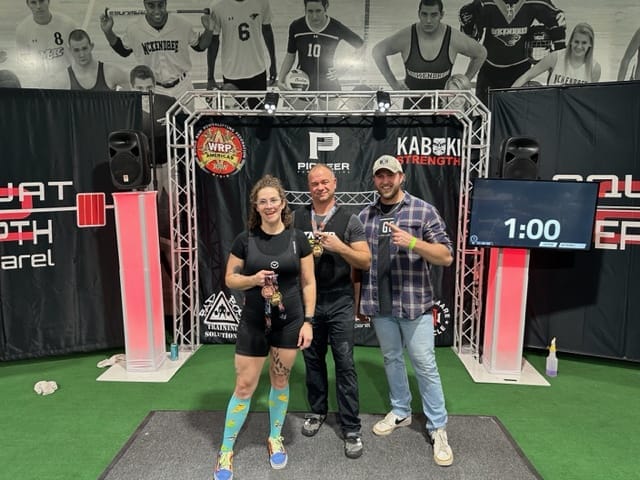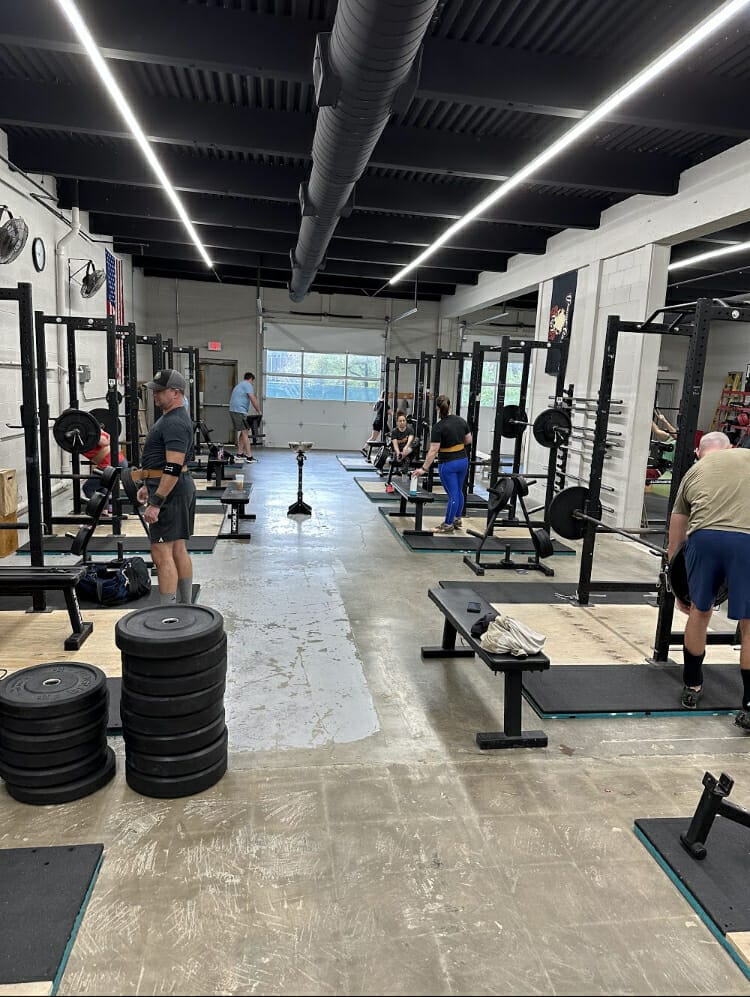At Brentwood Barbell, we mostly coach beginners.
Folks that wouldn’t likely train on their own. Perhaps they’re afraid they’ll get hurt? Maybe they worked with a coach before and it didn’t go so well? Maybe they don’t know where to start? Maybe they just want a coach to do the thinking for them?
In any event, at Brentwood Barbell, we mostly coach beginners.
I say this because we also have a few “non beginners”. Folks that lift pretty heavy weights. Folks that have been squatting, pressing, and pulling for a number of years. They’ve learned a lot under the bar, training tends to be a good teacher.
- They’ve learned about setting and accomplishing goals.
- They’ve learned about doing something hard… on purpose!
But! There is a secret that I want to share with you.
It’s this: The non-beginners struggle too!
I know, if you’re just getting started, you might be thinking that “this probably isn’t going to work” or that you’ll somehow fail. Maybe you’ve always thought of exercising as being difficult or something that “isn’t for you”. I get it. And the non-beginners get it too! They were once in your shoes.
Recently, we had a couple of lifters (non-beginners) go to a local meet at McKendree University. Both of them did really well! Their specific performances are irrelevant to the conversation (if you’re curious, catch Jason/Jamie around the gym and ask them how they did). But, I did want to share some of their struggles leading up to the meet. Each lifter:
- got really bored with their training
- got really anxious about the upcoming meet
- got a little beat up
- went into the meet unsure of exactly what would happen
- slipped into the comparison trap
Does any of this sound familiar? It probably does and it’s completely normal. Tasking yourself to do something difficult is a special skill. But, like a muscle, you can build this skill. Some people call this voluntary hardship. Some people even go so far as to assign some sort of virtue to voluntary hardship. I don’t know about that but I do know that doing something hard on purpose can benefit you.
How? Voluntary hardship helps you build the ability to: Keep Going!
The goals you have and the results you seek are on the other side of your discomfort. You cannot shortcut this. You cannot talk your way out of it. You’re going to have to get comfortable, being uncomfortable.
But, after some time, you’ll have grown and moved on to new problems and solutions. And the whole process repeats itself. But, with one major difference.
You’ll have more confidence in your ability to do hard, uncomfortable things!

Hope this helps! Congratulations Jason & Jamie, keep crushing it!
Talk soon, James

